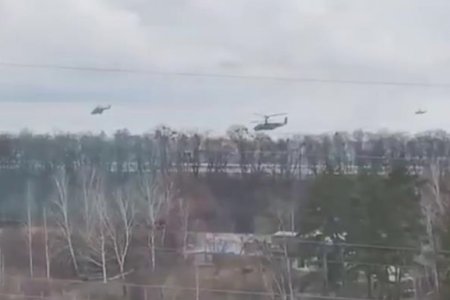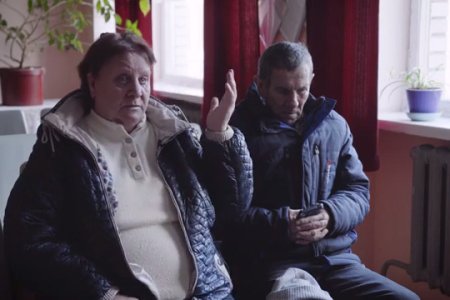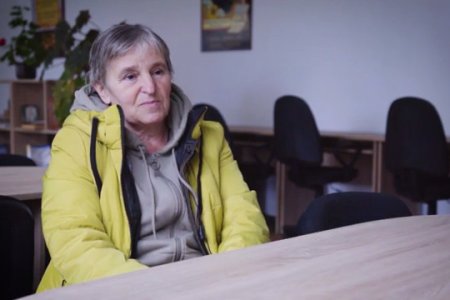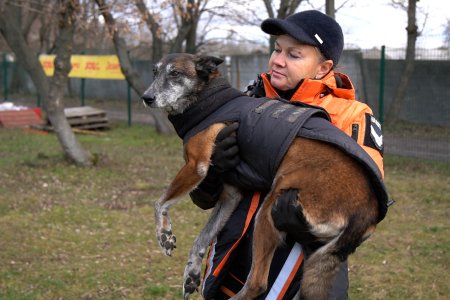My name is Savchenko Volodymyr Yuriiovych. I am from the city of Kramatorsk, Donetsk region. I arrived in the town of Stebnik on 9 April 2022.
How did the events of 2014 develop in your region?
The “Donetsk People’s Republic” (DPR), a pseudo-republic, was born. It happened in April 2014. A group of militants captured the city, and the war began. They set up roadblocks where only alcoholics and drug addicts worked. They checked everything. The city was constantly shelled. When the DPR group came in, a woman was killed, and a kiosk was blown up because they were shooting everywhere.
The store burned down completely, and the saleswoman burned inside. The DPR people placed mortars near the factories.
In 2014, school number 24 was bombed. We moved to the village of Yasnogorka, but there, too, shells flew every day for a month. We looked at everything, packed up, and left for a safe place. The child was five years old at the time.
How did the war of 2022 burst into your life?
I was going to work at 6:30, and I heard explosions from the side of the airfield. Two or three explosions. I looked online to see what was going on. They said that the war had begun. So I called to work, and they said not to go out, and it is unknown when we will work again. Then shelling went on every morning and evening. Explosions happened in different parts of the city.
It was terrifying when a shell flew about 100 meters from us at the end of March.
It’s good that a hill has been built there since Soviet times. It saved us; otherwise, there would be no half of the street. The explosions went from the hill to the old city. People’s windows and doors flew out there.
Have you witnessed the destruction of civilian facilities?
There was destruction at the railway station. Then, two weeks later, a shell flew into the area of the village council. There, too, houses were destroyed. They fired harder and harder. Then there was a slight pause: May-June. And over time, explosions began with renewed vigor. Not a single vocational school remained in our city of Kramatorsk in a week. All were bombed.
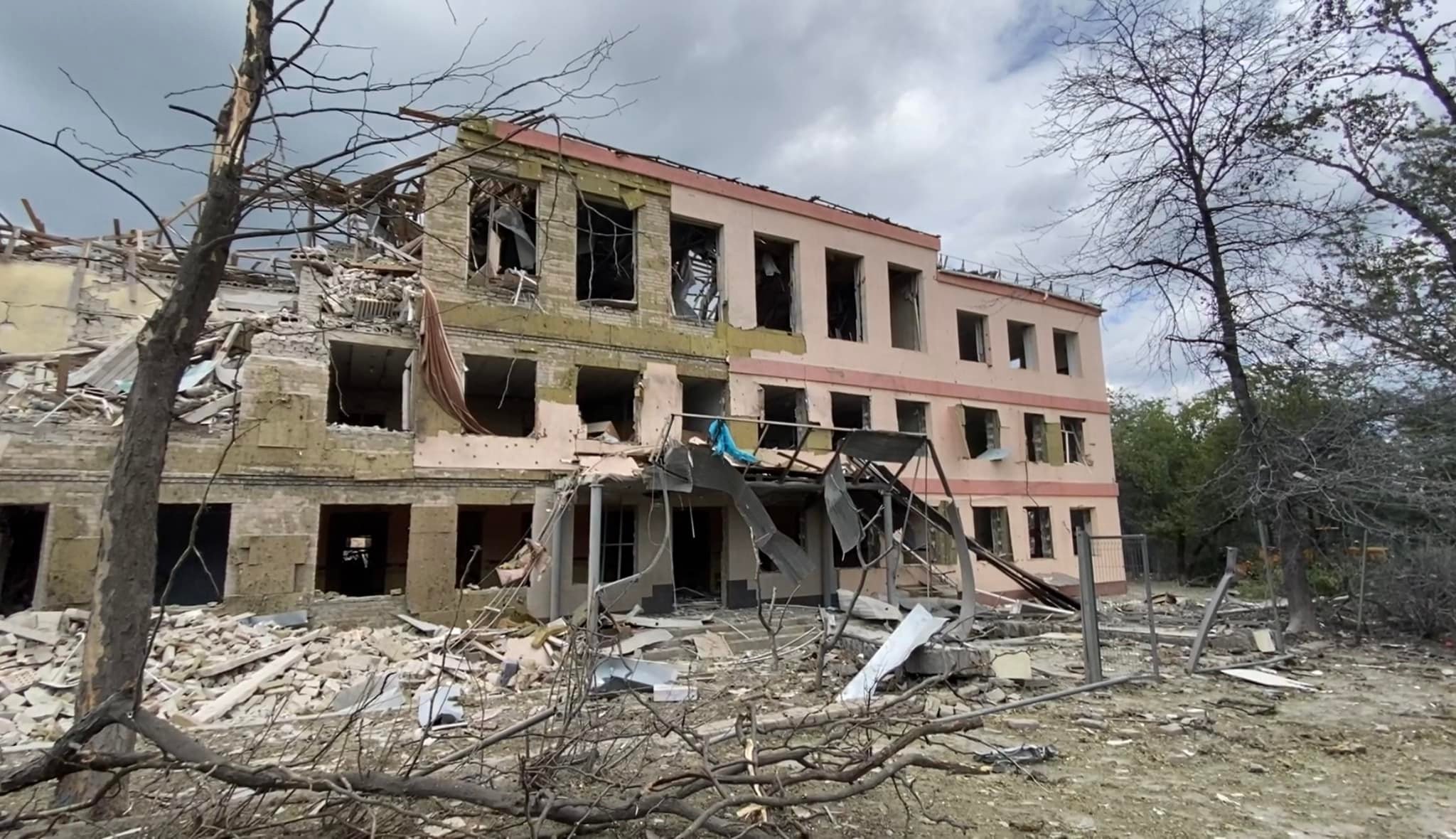
Four schools, three higher educational institutions, and one boarding school for children with special needs were bombed. Finally, no professional technical education in Kramatorsk left, and there is nowhere for children to study. Houses next to School No. 10 were shelled. The school was also severely damaged. In the village next to the school, about eight homes were bombed.
Did you have difficulty accessing food?
We went to the city center for groceries. At first, buying something in the village was problematic, but then they slowly began to import food. The queues were huge, and the price grew every day. Finally, the warehouse stock ended, and they started to carry supplies from the Dnipro. And distance means higher prices.
Did you have the opportunity to receive medical services during the hostilities?
Medicines disappeared in February. There were not even the most necessary: no bandages, no brilliant green, no fewer reducer, no painkillers. There was nothing in the pharmacies. People took everything in two days. So it was difficult with medicines. In April, there were still doctors, but they were leaving. My wife had to go to the doctor, she found her family doctor, but he said he would also leave soon.
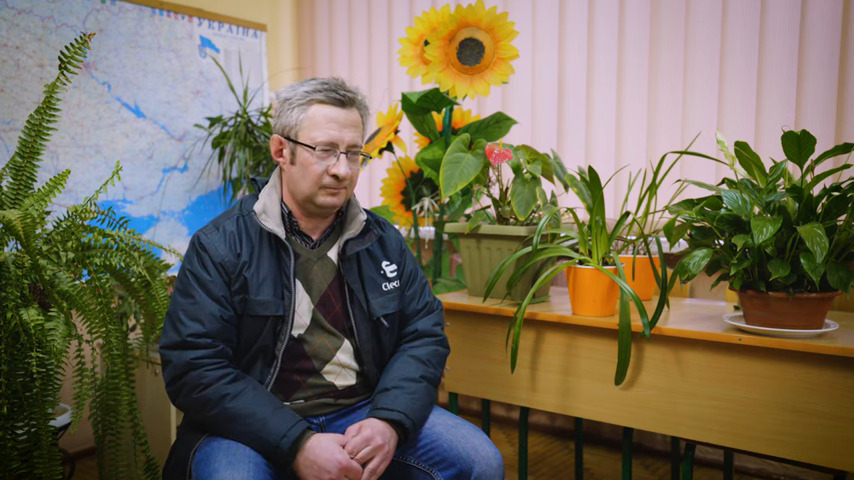
How was your evacuation?
There was no work, the rest of the supplies from the warehouse were sent, and that’s it. My wife was paid, but not me. However, they said that the store would be closed. All ATB stores were closed. We decided there was no point in sitting here surrounded by explosions. We must evacuate. On the morning of 7 April, we went to the railway station. There was a crazy queue — people with small children, pensioners, and someone with pets. We boarded the train at 18:00, we thought we would go, but we were told that the railway tracks were damaged in the Barvinkov area near the railway bridge.
We were dropped off, and then the military checked the bridge and called the railway workers saying it was possible to pass. Boarding was announced again, and we boarded the train. When we drove across the bridge, it was terrible to look at: the corpses were lying on it.
A lot of houses burned down near Barvinkovo. The fire was terrible.
All conductors were from Western Ukraine. They prayed on their knees in the compartment, begging to pass this part of the way. It was terrible. The train was moving very slowly, about 5 km per hour. Traveling usually takes a day, and we traveled for 40 hours. We often stopped at railway stations for a long time. Also, we didn’t go the usual route but took detours.
Do you plan to return home after the end of the war?
God willing, everything survived, and we returned home. So we do not lose hope. We do hope to return.
 The article was prepared by the Kharkiv Human Rights Protection Group with the support of the "
The article was prepared by the Kharkiv Human Rights Protection Group with the support of the "